Saturday, July 30th 2005: Within 48 hours of that historic IRA statement I began to better understand the shape of this phase of the process; something that was more about the war than the politics of this place. The IRA words of Thursday would bring a British demilitarisation response and within it a prediction of an ‘earthquake’ inside the unionist/loyalist community. For now, the focus was not the restoration of functioning and working politics at Stormont, but more a first response to that formal ending of the IRA armed campaign; and “the starting pistol being fired on normalisation”. Those words were spoken to me in a face-to-face meeting with Mervyn Wynne Jones on that Saturday, July 30th 2005. At the time, he was the chief press officer at Army Headquarters in Northern Ireland.
As I revisit my notes from that meeting, so I remember him speak his words and the emphasis he placed on the importance of this response. There would be “a significant basket of measures” and a “major issue” was still being addressed: “The intent to disband the Home Service battalions of the Royal Irish Regiment.” This announcement was being planned for noon on Monday, August 1st, and he assured me that there was no chance of it breaking before then. He had arranged an interview for me with Colonel Mark Campbell, and the army spokesman accurately predicted an ‘earthquake’ within the unionist community as the detail of this announcement would become known. That disbandment of the Home Service battalions of the Royal Irish Regiment would fit within a two-year plan to end Operation Banner, the Army’s decades-long support role to the police, and would be part of major changes to the security landscape and the making of a peace time garrison. I was told of lots of discussions going on involving the Northern Ireland Office, Downing Street and the Ministry of Defence. At noon on Monday August 1st, I broke that story relating to the Royal Irish Regiment, and then made my way to Thiepval Barracks for that interview with Colonel Mark Campbell.
What became immediately obvious was that the unionists were not in the loop. The DUP deputy leader at the time, Peter Robinson, would later tell me that Ian Paisley got a call from Defence Secretary John Reid “five minutes after you people in the BBC had already announced it on the news”. “That’s how much notice we were given of that.”
Over the weekend, I had filmed Royal Irish Regiment soldiers on duty as part of trying to prevent further attacks in the latest of the loyalist feuds - this one involving the UVF and the LVF. The soldiers had no idea of the real purpose of the filming by cameraman Nigel Rees. Out of their earshot, I recorded a piece to camera for Monday's lunchtime television news, including the words: Within two years there are plans to end Operation Banner - how the Army describes its support role to the police. And, with that, the Royal Irish Regiment will go. Its home based battalions here in Northern Ireland will be disbanded.
In my first question to Colonel Mark Campbell on Monday afternoon, I asked was this the day his soldiers were thrown to the political wolves. He pushed that away: "No, not at all. I wouldn't accept that. This is clearly a security issue... And our assessment is, particularly following the Provisional IRA statement of last week, that we are approaching a point where the Police Service of Northern Ireland will be able to provide the security and law enforcement to the Province without routine military support."
They were the words I would have expected from the Colonel, but writing for the BBC in this period, I used this sentence to contextualise these developments: Republicans will view this as "military Brits out" - that is its real significance. And I added these thoughts: The past few days have given us the stuff of history - words and actions that point towards a better peace than the one we have had so far. But there is another question: Are the loyalist paramilitaries watching and listening? Because in the here and now of Northern Ireland, it is their guns that are loudest.
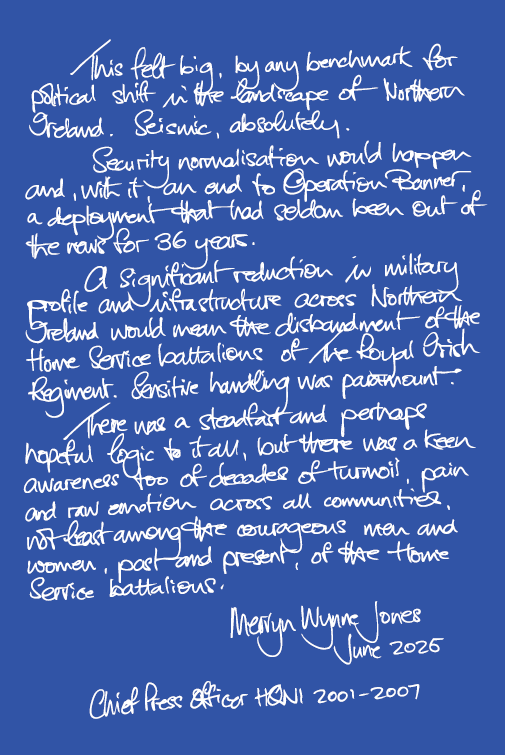 Mervyn Wynne Jones writes on the significance of developments, describing a seismic shift in the landscape of Northern Ireland.
Mervyn Wynne Jones writes on the significance of developments, describing a seismic shift in the landscape of Northern Ireland.
Text transcript
This felt big, by any benchmark for political shift in the landscape of Northern Ireland. Seismic, absolutely.
Security normalisaiton would happen and, with it, an end to Operation Banner, a deployment that had seldom been out of the news for 36 years.
A significant reduction in military profile and infrastructure across Northern Ireland would mean the disbandment of the Home Service battalions of The Royal Irish Regiment. Sensitive handling was paramount.
There was a steadfast and perhaps hopeful logic to it all, but there was a keen awareness too of decades of turmoil, pain and raw emotion across all communities. Not least among the courageous men and women, past and present, of the Home Service battalions.
Mervyn Wynne Jones
June 2025
Chief Press Officer HQNI 2001 - 2007
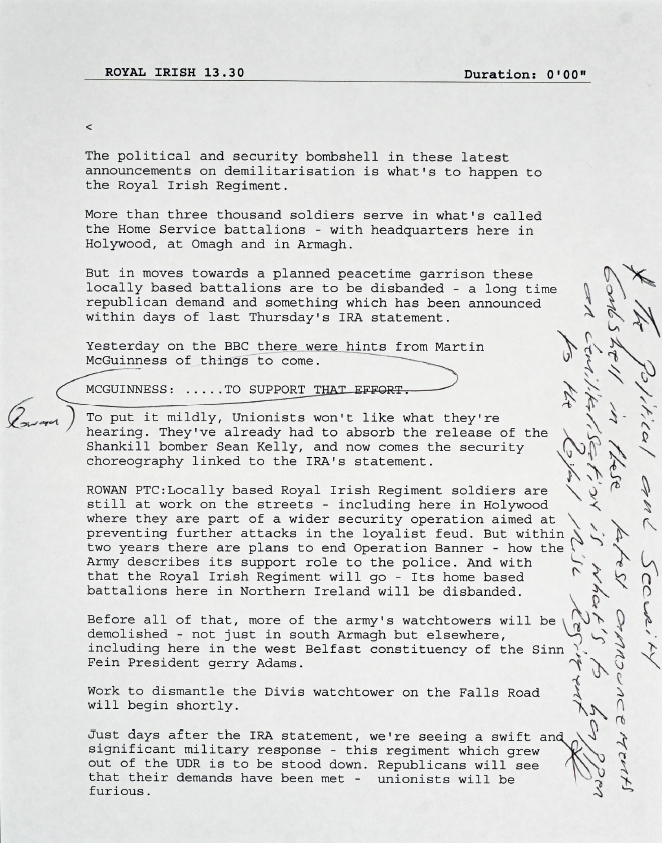 Rowan’s television news script describing the political and security bombshell in the Army’s statement of August 1st 2005.
Rowan’s television news script describing the political and security bombshell in the Army’s statement of August 1st 2005.
Text transcript
HEADER: ROYAL IRISH 13.30 Duration: 0'00"
The political and security bombshell in these latest announcements on demilitarisation is what's to happen to the Royal Irish Regiment.
More than three thousand soldiers serve in what's called the Home Service battalions - with headquarters here in Holywood, at Omagh and in Armagh.
But in moves towards a planned peacetime garrison these locally based battalions are to be disbanded - a long time republican demand and something which has been announced within days of last Thursday's IRA statement.
Yesterday on the BBC there were hints from Martin McGuinness of things to come.
MCGUINNESS: .....TO SUPPORT THAT EFFORT. (Corrected in handwriting to Rowan)
To put it mildly, Unionists won't like what they're hearing. They've already had to absorb the release of the Shankill bomber Sean Kelly, and now comes the security choreography linked to the IRA's statement.
ROWAN PTC: Locally based Royal Irish Regiment soldiers are still at work on the streets - including here in Holywood where they are part of a wider security operation aimed at preventing further attacks in the loyalist feud. But within two years there are plans to end Operation Banner - how the Army describes its support role to the police. And with that the Royal Irish Regiment will go - Its home based battalions here in Northern Ireland will be disbanded.
Before all of that, more of the army's watchtowers will be demolished not just in south Armagh but elsewhere, including here in the west Belfast constituency of the Sinn Fein President Gerry Adams.
Work to dismantle the Divis watchtower on the Falls Road will begin shortly.
Just days after the IRA statement, we're seeing a swift and significant military response - this regiment which grew out of the UDR is to be stood down. Republicans will see that their demands have been met - unionists will be furious.
Download the archive (PDF, 37MB)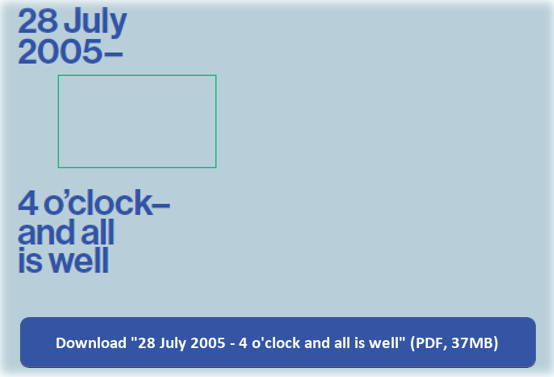

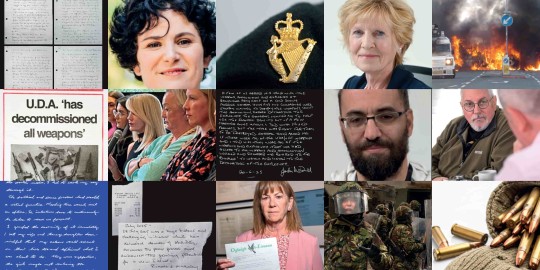
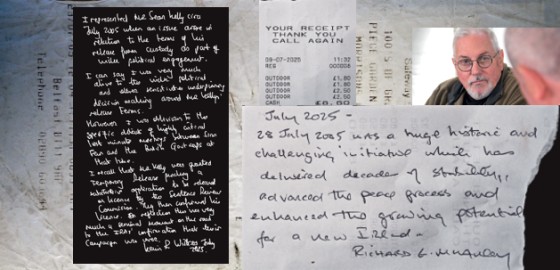
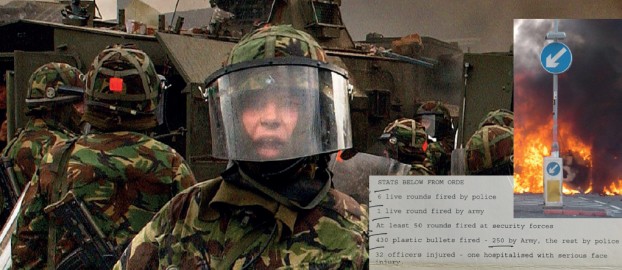
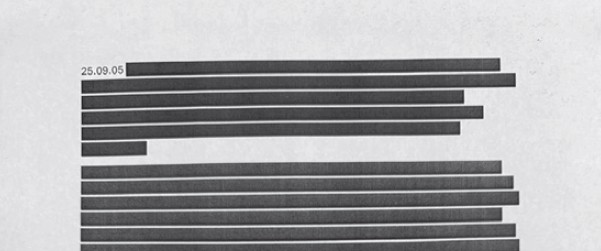
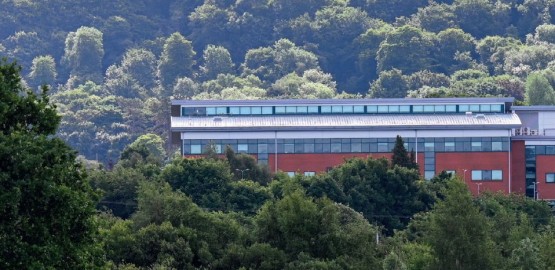
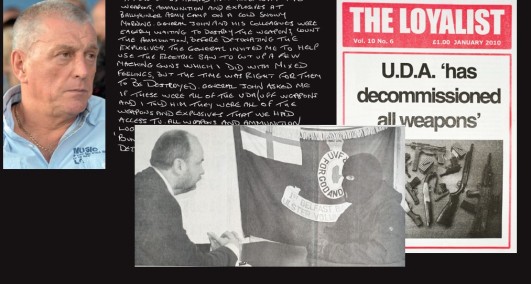
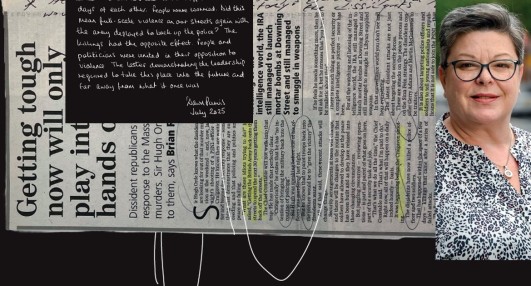
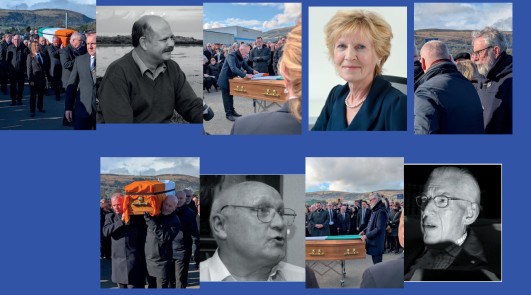
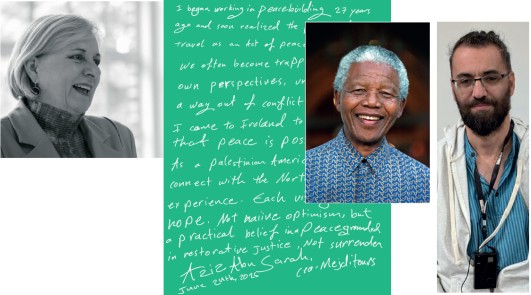

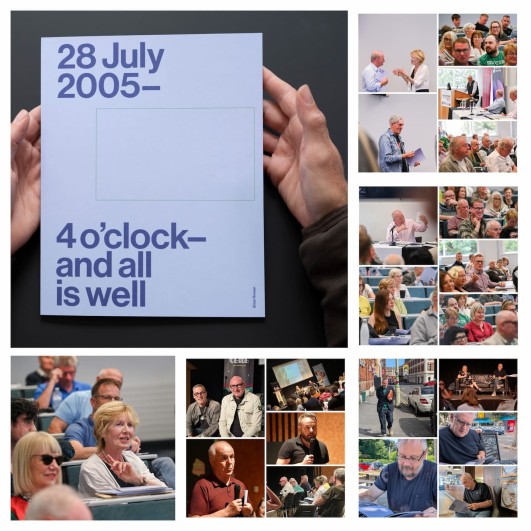

Rate and Review
Rate this article
Review this article
Log into OpenLearn to leave reviews and join in the conversation.
Article reviews